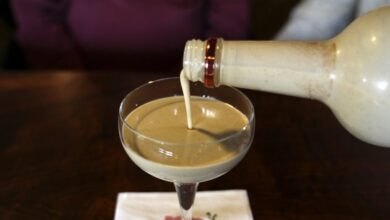Inuvik’s Hope House helps people in the community

INUVIK, NWT –
Several people stroll into Hope House at lunchtime for a warm bowl of caribou stew, freshly baked bread and respite from the early July heat in Inuvik, NWT
The drop-in center, which serves underserved and underprivileged people in the western Arctic community, offers a washroom, food, mental health services and a space to relax. People can also use a laptop to look for work and get basic supplies for the home.
Sharon Rogers, the senior front-line community worker at Hope House, said it bridges the gap between the two shelters operating in Inuvik. The city has a homeless shelter, where people who are drunk cannot stay, and a warm shelter, which is open to people under the influence of alcohol or drugs.
“This was kind of a middle ground if they had somewhere to go,” Rogers said, noting that the region has harsh winters.
“It is very much needed.”
The center, which opened in October, was developed by Peggy Day, Susan Peffer, Veronica Kasook and William Hurst. The team received $495,000 for the project through the Arctic Inspiration Prize in 2022.
According to Rogers, Hope House has helped nearly 1,600 people since November. She noted that many of the center’s employees have become homeless themselves.
“It’s my heart,” she said of the center. “I would like to stay in this role forever. I like serving people and I like seeing their facial expressions.”
Rogers’ sister is among those who visit Hope House on this day. She is emotional as she expresses her appreciation for the drop-in center and says it supports people who want to stop drinking.
Others say they’re glad they can go somewhere to eat.
Rogers said Hope House is also a place where women can make beads, get art supplies and play food bingo, where the prizes are food boxes.
The center also offers cultural programs, such as traditional games and a fish hook-making workshop, she said. It now has two newly built tent frames in the backyard where she said people can come to carve and summer programs can be held.
In February, the center hosted a parka sewing class, where several homeless men cut out the materials and sewed their own winter coats.
“They had never touched a sewing machine,” Rogers said. “Now they know how to change the bobbin when the thread runs out. They know a little more about sewing, which they never did before.”
A traditional harpoon-making workshop that was due to take place this month has been postponed to a later date because the city was on a heat warning. Rogers said the hot weather has made working outside difficult.
This report from The Canadian Press was first published on July 12, 2023.
This story was produced with the financial support of the Meta and Canadian Press News Fellowship.




